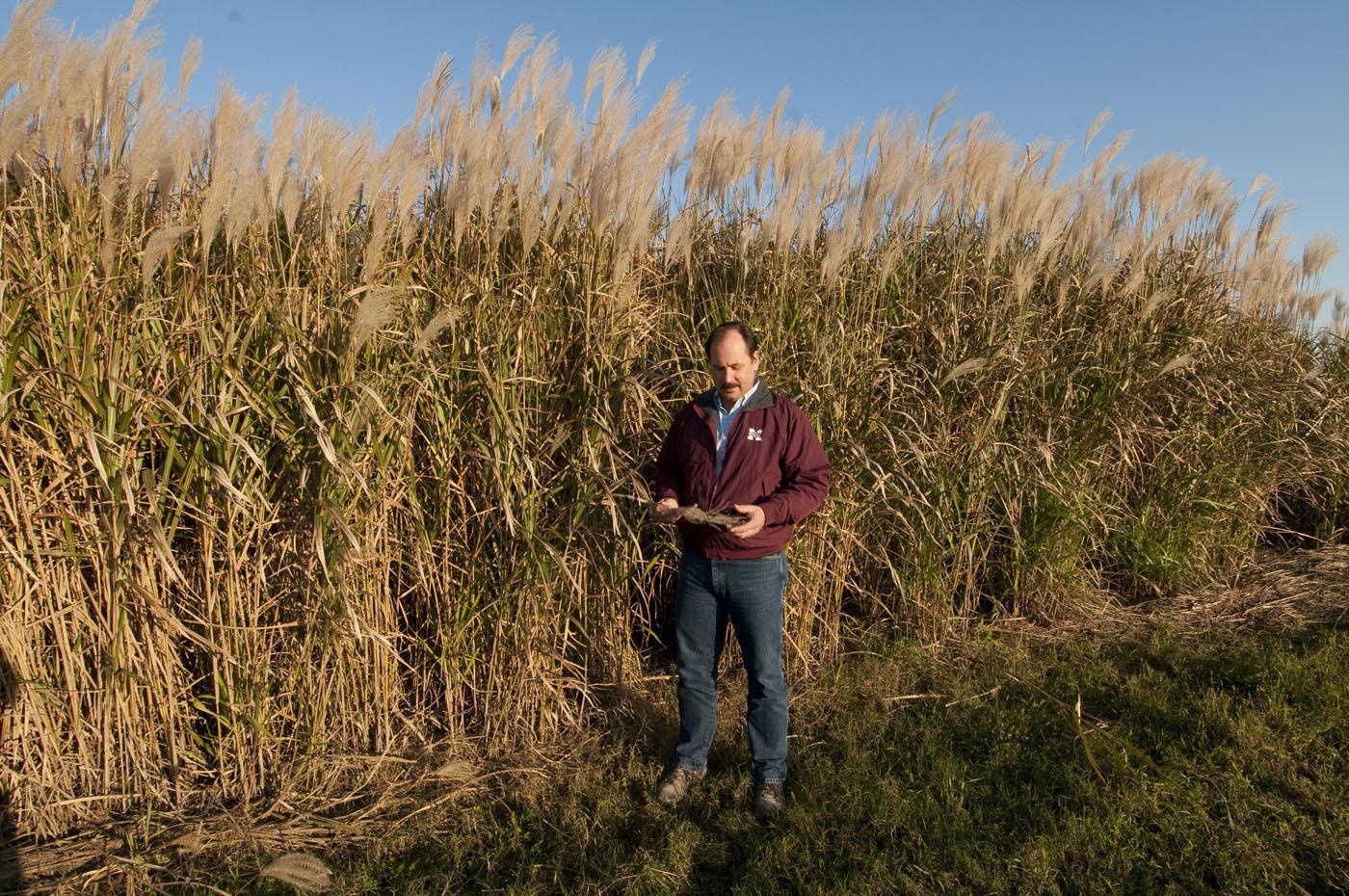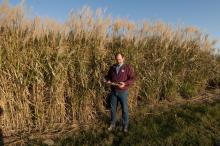Information Possibly Outdated
The information presented on this page was originally released on March 1, 2012. It may not be outdated, but please search our site for more current information. If you plan to quote or reference this information in a publication, please check with the Extension specialist or author before proceeding.
MSU's giant miscanthus used to make gasoline
MISSISSIPPI STATE -- Cool Planet Biofuels recently announced it has used Freedom giant miscanthus to create gasoline, a breakthrough in the biofuels industry.
Mississippi State University researcher Brian Baldwin and his colleagues in the Mississippi Agricultural and Forestry Experiment Station spent years developing a variety of giant miscanthus, a perennial grass native to Asia, particularly suited to the Southeastern climate and soils. MSU filed a plant patent application for the resulting variety, named Freedom, in 2010, and licensed it to Georgia-based Repreve Renewables LLC.
Chase Kasper, associate director of the Office of Entrepreneurship and Technology Transfer at MSU, said this breakthrough affirms the importance of research and the patent process.
“MSU, MAFES and the Extension Service have a long history of bioenergy research. The possibility of gasoline being made from a cultivar developed in Mississippi is very exciting and validates MSU’s research focus,” Kasper said. “The primary reason we license our intellectual property is so our industrial partners can take MSU’s research and translate it into greater applications for the public benefit. We want our technology out there, improving the lives of people around the world.”
In the pilot testing phase, Cool Planet Biofuels generated an estimated 4,000 gallons of gasoline per acre of biomass using Freedom giant miscanthus. This figure is based on nearly optimal crop growth conditions. They estimate an average yield of 3,000 gallons per acre. The gasoline is produced using mild process conditions that take in-field, air-dried and coarsely ground biomass and subject it to temperatures comparable to those of a kitchen stovetop and pressures comparable to those of a portable tire inflator.
“We met the people from Cool Planet Biofuels two years ago at a conference,” said Craig Patterson, manager of commercial operations with Repreve Renewables. “We provided them with samples of Freedom giant miscanthus, which they used in their process of converting biomass to gasoline. Their product is a drop-in, tank-ready gasoline, chemically identical to gasoline made from fossil fuels.”
While agricultural wastes, such as corn stover, or other bioenergy crops, such as switchgrass or wood, can be used to create gasoline, Cool Planet’s announcement shows that as a biofuel feedstock, Freedom giant miscanthus outperforms other materials in yield per acre.
Cellulose-based gasoline has several advantages over ethanol, Patterson said.
“A gallon of ethanol does not replace a gallon of gas,” he said. “Most cars can use up to 15 percent ethanol. Ethanol extends our fuel supply; it doesn’t replace it. Ethanol can’t be used with the current fuel infrastructure – it has to travel in separate pipelines and requires modified pumps at the station, which translates to huge costs.”
Cool Planet Biofuels is road-testing their product in California, a state known for its strict auto emissions regulations. Because the biofuel has an octane level of 109, it is mixed with a lower octane gasoline to create a useable product for standard engines.
“We’re pleased with the results Cool Planet Biofuels obtained using Freedom,” Patterson said. “This is monumental news for producers interested in biomass crop production. Commercial scale drop-in biofuel production like this will help the United States reduce foreign fuel imports.”





